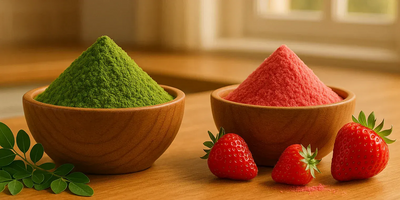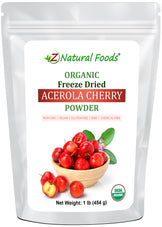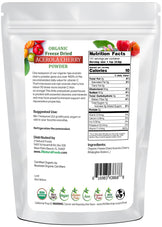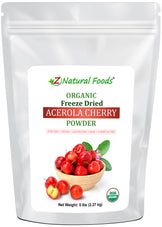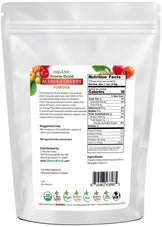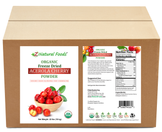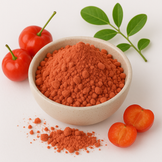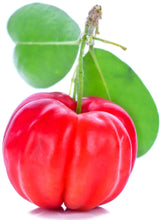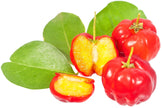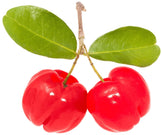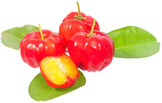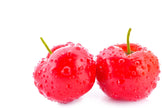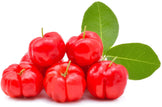Description
Description
A milligram is derived from the metric system and is a unit of mass. The prefix milli stands for one thousandths, therefore one milligram is equal to one thousandths of a gram.
Are all milligrams created equal? Yes, they are in terms of mass.
Yet this is where I believe science has failed to distinguish the quantity of milligrams necessary based on the source from which it comes. I will show you why they are not all created equal.
For years, people in the supplement industry have been complaining that the recommended daily intake (RDI) for nutrient levels are way too low for achieving optimal health. To be very clear, I don’t disagree that we need more than the minimum to nourish our bodies.
The question is, are they really too low or are we not comparing apples to apples?
Let’s look at all the facts and why I believe we are comparing apples to oranges.
If you are comparing nutrient levels of foods, herbs and superfoods with supplements you are misleading yourself to believe that all amounts are created equal.
The fact is they are not. When we look at the whole food and the breakdown of its nutrients and phytochemicals, each food is superior in a specific nutrient.
Almost never in nature do you find food that is 5000% above the RDI. There is a reason why foods that nourish our bodies don’t have massive amounts of these nutrients. It is just not necessary. If that food is nourishing it will naturally contain everything you need to make it extremely bioavailable.
Here is a perfect example:
Acerola cherries are known to have very nourishing levels of the full vitamin C complex. Note, I did not say vitamin C. I said vitamin C complex. The entire complex is present in that food and nothing is in large amounts. Because it is the whole complex, everything is in perfect balance to work together synergistically for your metabolism to break it down and be efficiently and completely absorbed by your body.
Here’s another example:
If you were to test 10 different batches of the same food from different growing seasons in different regions and have them tested for nutrient levels you will be surprised at what you find. I assure you that each one of those batches will come back with varying nutrient levels of that food.
If the number of milligrams were so important, then why is it, that all of those different batches give the same naturally nourishing results? That is, no matter how much the nutrient levels vary from batch to batch, the result of nourishing your body is the same. Therefore, the varying amounts don't mean a thing.
The reason is that the total number is not important. It is simply the fact that everything that is naturally occurring in the whole food is present which work together to deliver the goods.
Remember, not one single nutrient or phytochemical works alone. They all work as a complex team supporting one another.
Next, let’s take a look at your average supplement label.
I am sure you have taken notice that most of the ingredients in a supplement are in levels well above the RDI. When I use the term “supplements” I am referring to isolated nutrients, amino acids, etc. which are no longer in their most natural stable form. I am not speaking of herbs or whole foods when I use the term “supplement”.
Supplements are basically the links of the complete chain that have been broken down. And I am pretty sure you know what happens when we use a chain with weak links. The reason a company needs to put that much of a nutrient in the product is because it is taken out of its “whole” form. All of the components which are necessary for the body to make the nutrients bioavailable are there. So, from that 2500 mgs you take, you only absorb a fraction of that amount. If this is the end result, then why isolate? A chain is only as strong as its weakest link right? So, why separate the links of that chain when the result is only going be a weaker and less productive chain!
What does all this herbal-techno-babble mean, really?
Well, for the last 100 years science has tried to re-invent mother nature. There is a reason why science keeps loosing this battle. You can’t mess with perfection.
Are all milligrams created equal? I think not.
In great health,
Mike Stuchiner, Master Herbalist
About Michael Stuchiner
Michael Stuchiner is an experienced Master Herbalist, the Head of Education for Z Natural Foods, a teacher and an accomplished author. With a 16-year specialization in medicinal herbs, Mike also has a vast knowledge in tonic and adaptogenic herbalism. Mike has enjoyed a 25-year career as an elite-level competitive powerlifter where he learned to heal his ‘mind and body’ as an avid user of herbal remedies.
As an “in-the-trenches” herbalist, Mike has done more than 85 speaking engagements, consulted with clients ranging from young to elderly, worked with athletes in virtually all sports and with clients who have “dis-ease” states of a wide variety. Mike also mentors student Master Herbalists and will continue to teach the next generation to grow a deeper wisdom of the human body through appropriate herbal remedies.
For Bulk inquiries and custom formulations click here: https://www.znaturalfoods.com/pages/bulk


